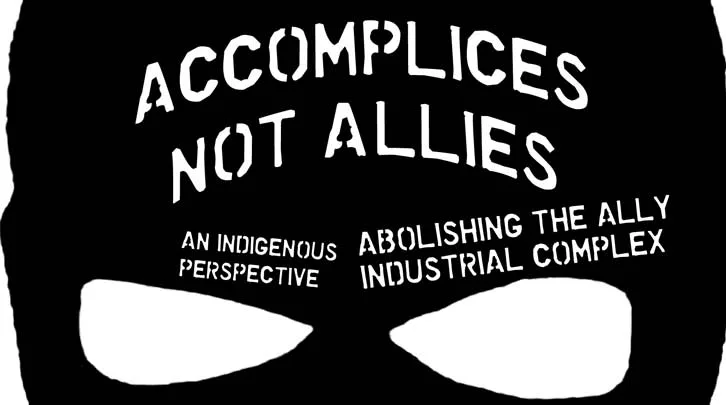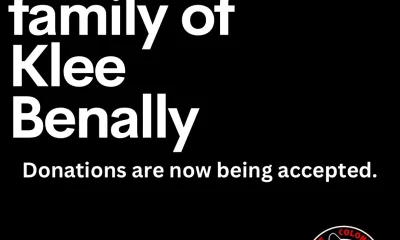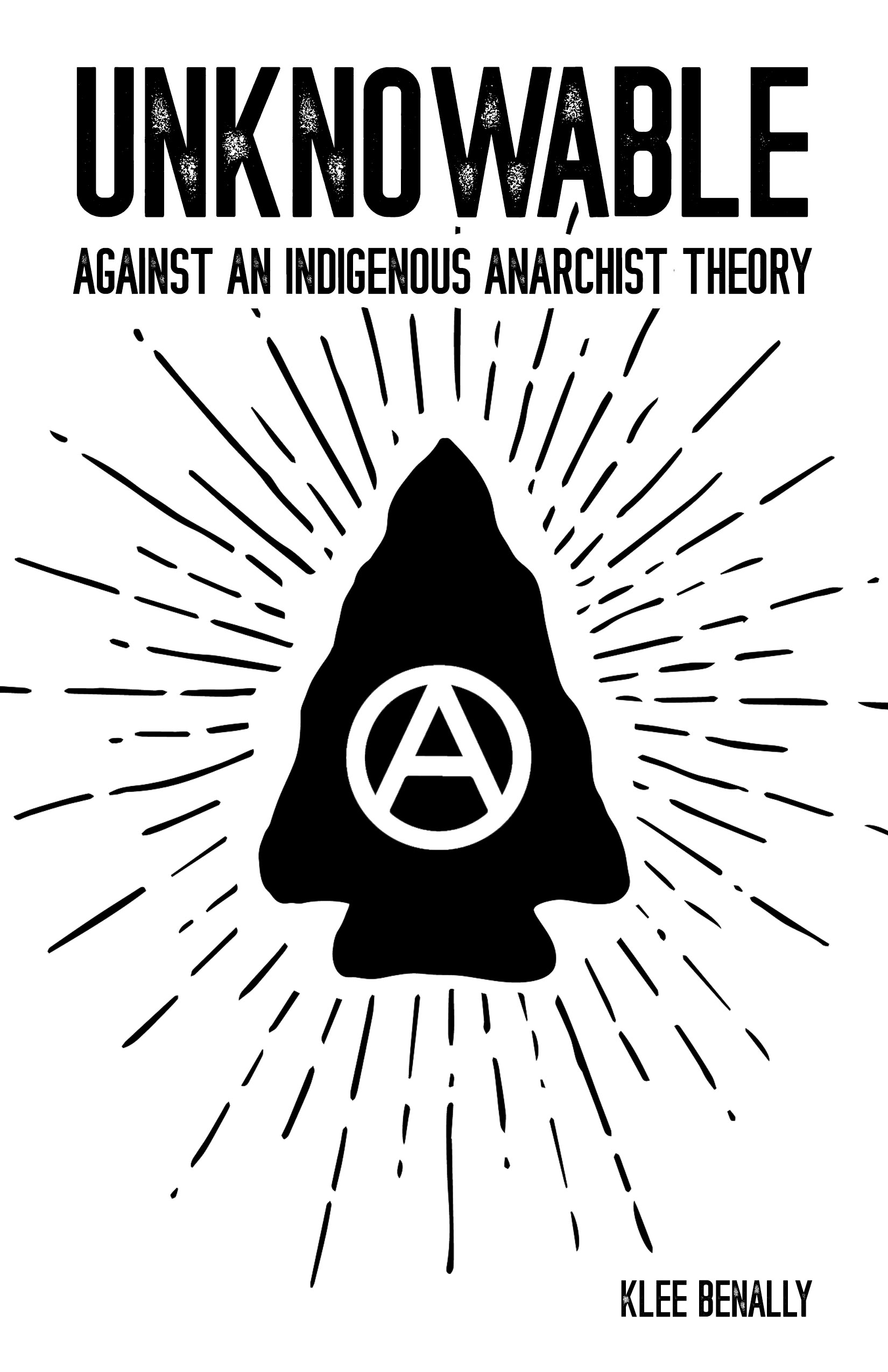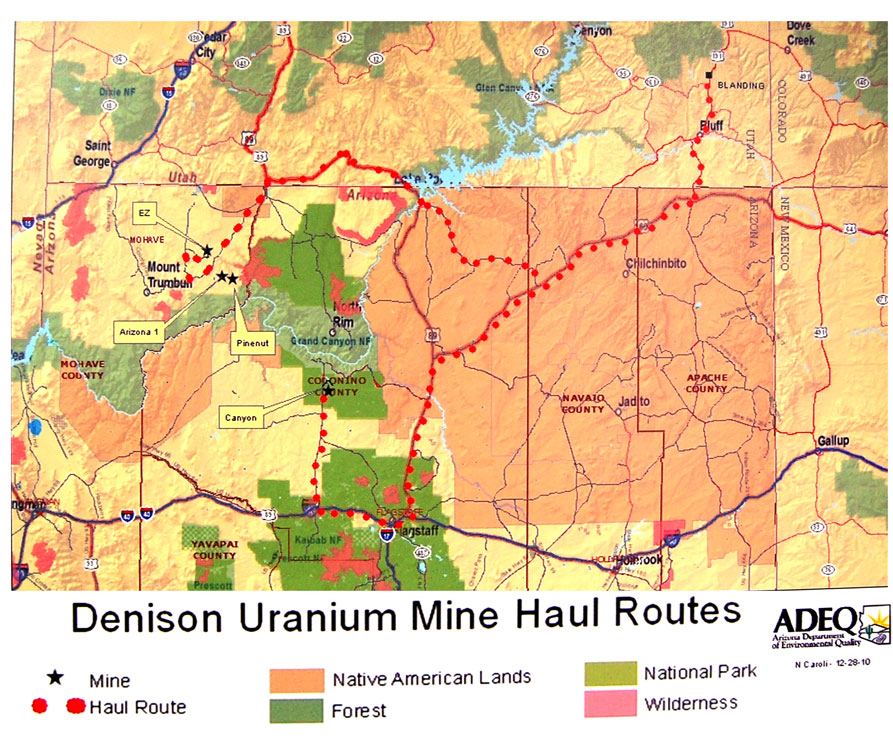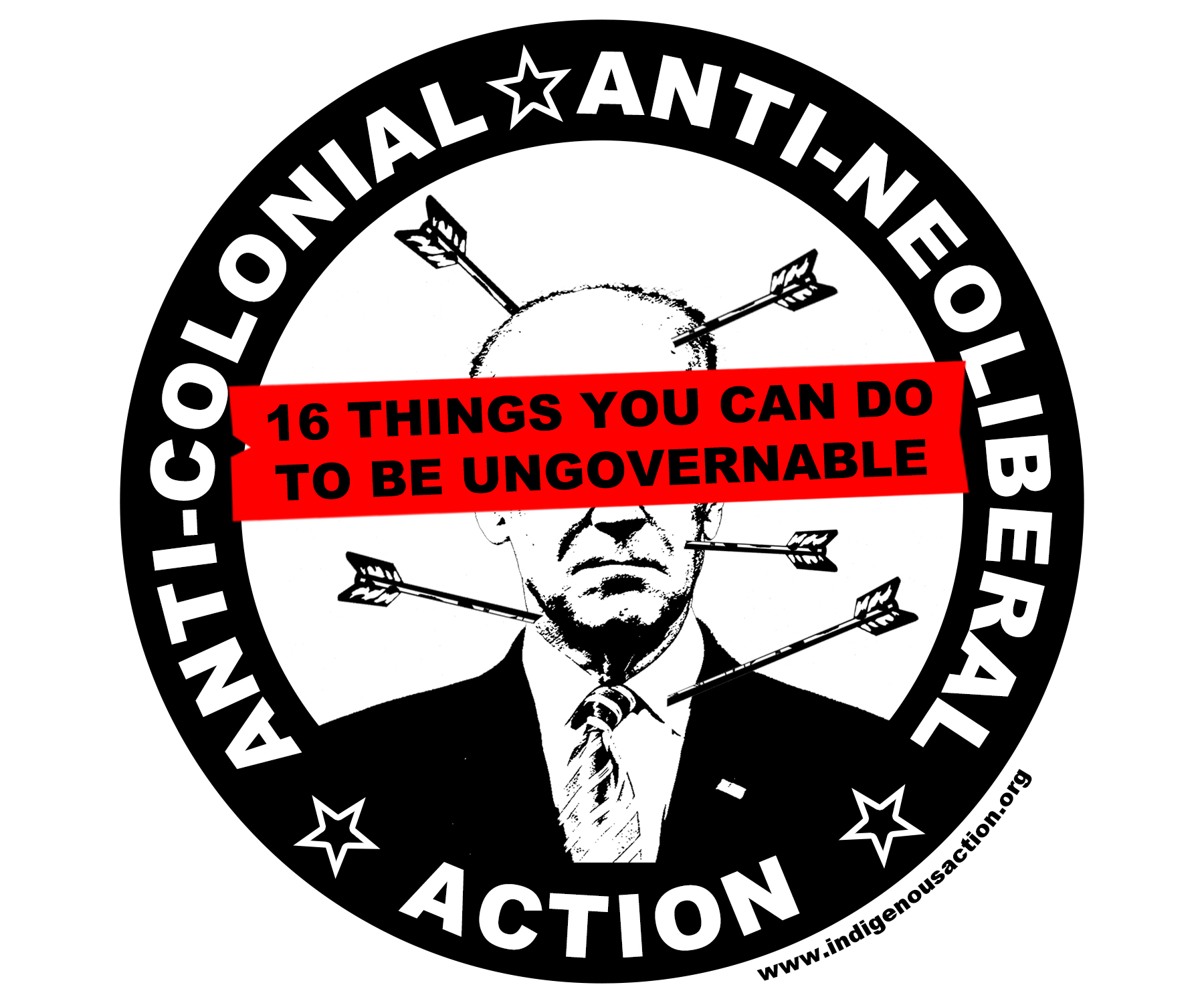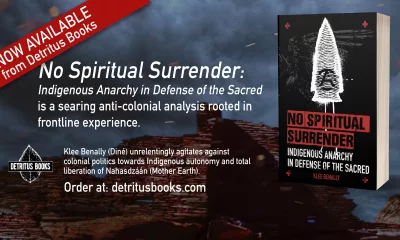anti-colonial
Voting is Not Harm Reduction – An Indigenous Perspective
Published
6 years agoon
By
Rudy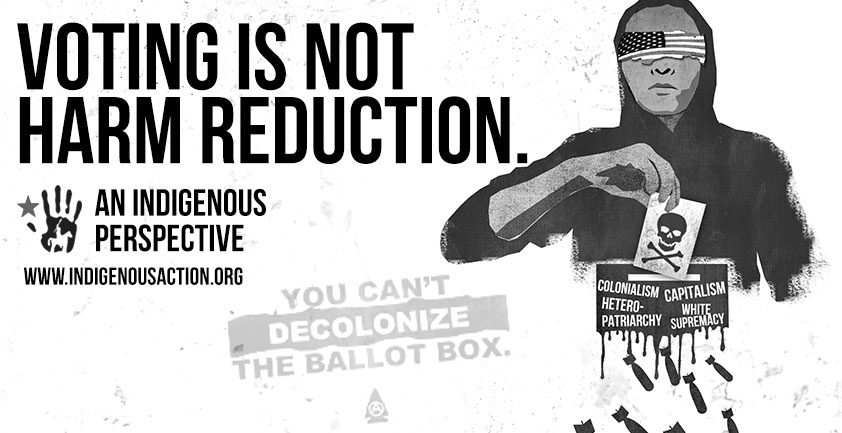
Voting is Not Harm Reduction
An Indigenous Perspective
February 2020 – www.indigenousaction.org
Zine format printable PDF download: Voting is Not Harm Reduction Zine-FINAL-PRINT (9.8MB)
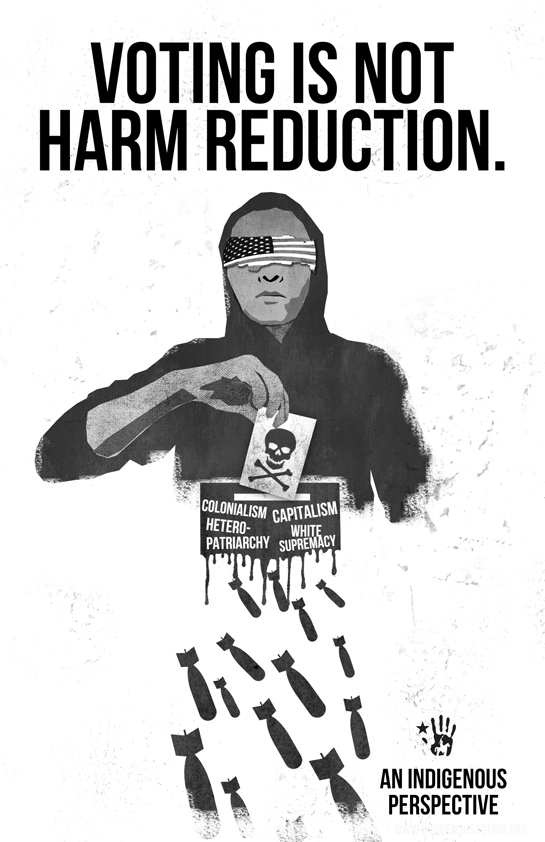 When proclamations are made that “voting is harm reduction,” it’s never clear how less harm is actually calculated. Do we compare how many millions of undocumented Indigenous Peoples have been deported? Do we add up what political party conducted more drone strikes? Or who had the highest military budget? Do we factor in pipelines, mines, dams, sacred sites desecration? Do we balance incarceration rates? Do we compare sexual violence statistics? Is it in the massive budgets of politicians who spend hundreds of millions of dollars competing for votes?
When proclamations are made that “voting is harm reduction,” it’s never clear how less harm is actually calculated. Do we compare how many millions of undocumented Indigenous Peoples have been deported? Do we add up what political party conducted more drone strikes? Or who had the highest military budget? Do we factor in pipelines, mines, dams, sacred sites desecration? Do we balance incarceration rates? Do we compare sexual violence statistics? Is it in the massive budgets of politicians who spend hundreds of millions of dollars competing for votes?
Though there are some political distinctions between the two prominent parties in the so-called U.S., they all pledge their allegiance to the same flag. Red or blue, they’re both still stripes on a rag waving over stolen lands that comprise a country built by stolen lives.
We don’t dismiss the reality that, on the scale of U.S. settler colonial violence, even the slightest degree of harm can mean life or death for those most vulnerable. What we assert here is that the entire notion of “voting as harm reduction” obscures and perpetuates settler-colonial violence, there is nothing “less harmful” about it, and there are more effective ways to intervene in its violences.
At some point the left in the so-called U.S. realized that convincing people to rally behind a “lesser evil” was a losing strategy. The term “harm reduction” was appropriated to reframe efforts to justify their participation and coerce others to engage in the theater of what is called “democracy” in the U.S.
Harm reduction was established in the 1980s as a public health strategy for people dealing with substance use issues who struggle with abstinence. According to the Harm Reduction Coalition (HRC) the principles of harm reduction establish that the identified behavior is “part of life” so they “choose not to ignore or condemn but to minimize harmful effects” and work towards breaking social stigmas towards “safer use.” The HRC also states that, “there is no universal definition of or formula for implementing harm reduction.” Overall, harm reduction focuses on reducing adverse impacts associated with harmful behaviors.
The proposition of “harm reduction” in the context of voting means something entirely different from those organizing to address substance use issues. The assertion is that “since this political system isn’t going away, we’ll support politicians and laws that may do less harm.”
The idea of a ballot being capable of reducing the harm in a system rooted in colonial domination and exploitation, white supremacy, hetero-patriarchy, and capitalism is an extraordinary exaggeration. There is no person whose lives aren’t impacted everyday by these systems of oppression, but instead of coded reformism and coercive “get out the vote” campaigns towards a “safer” form of settler colonialism, we’re asking “what is the real and tragic harm and danger associated with perpetuating colonial power and what can be done to end it?”
Voting as practiced under U.S. “democracy” is the process with which people (excluding youth under the age of 18, convicted felons, those the state deems “mentally incompetent,” and undocumented folx including permanent legal residents), are coerced to choose narrowly prescribed rules and rulers. The anarchist collective Crimethinc observes, “Voting consolidates the power of a whole society in the hands of a few politicians.” When this process is conducted under colonial authority, there is no option but political death for Indigenous Peoples. In other words, voting can never be a survival strategy under colonial rule. It’s a strategy of defeat and victimhood that protracts the suffering and historical harm induced by ongoing settler colonialism. And while the harm reduction sentiment may be sincere, even hard won marginal reforms gained through popular support can be just as easily reversed by the stroke of a politician’s pen. If voting is the democratic participation in our own oppression, voting as harm reduction is a politics that keeps us at the mercy of our oppressors.
If voting is the democratic participation in our own oppression, voting as harm reduction is a politics that keeps us at the mercy of our oppressors.
While so many on the left–including some Indigenous radicals–are concerned with consolidation of power into fascists hands, they fail to recognize how colonial power is already consolidated. There is nothing intersectional about participating in and maintaining a genocidal political system. There’s no meaningful solidarity to be found in a politics that urges us to meet our oppressors where they’re at. Voting as harm reduction imposes a false solidarity upon those identified to be most vulnerable to harmful political policies and actions. In practice it plays out as paternalistic identity politicking as liberals work to identify the least dangerous candidates and rally to support their campaigns. The logic of voting as harm reduction asserts that whoever is facing the most harm will gain the most protection by the least dangerous denominator in a violently authoritarian system. This settler-colonial naivety places more people, non-human beings, and land at risk then otherwise. Most typically the same liberal activists that claim voting is harm reduction are found denouncing and attempting to suppress militant direct actions and sabotage as acts that “only harm our movement.” “Voting as harm reduction” is the pacifying language of those who police movements.
Voting as harm reduction is the government issued blanket of the democratic party, we’re either going to sleep or die in it.
To organize from a position that voting is an act of damage limitation blurs lines of the harm that settler and resource colonialism imposes.
Under colonial occupation all power operates through violence. There is absolutely nothing “less harmful” about participating in and perpetuating the political power of occupying forces. Voting won’t undue settler colonialism, white supremacy, hetero-patriarchy, or capitalism. Voting is not a strategy for decolonization. The entire process that arrived at the “Native vote” was an imposition of U.S. political identity on Indigenous Peoples fueled by white supremacy and facilitated by capitalism.
The Native Vote: A Strategy of Colonial Domination
Prior to settler colonial invasion, Indigenous Peoples maintained diverse complex cultural organizations that were fairly unrecognizable to European invaders. From its inception, the U.S. recognized that Indigenous Peoples comprised distinct sovereign Nations. The projection of Nation status was committed on the terms of the colonizers who needed political entities to treaty with (primarily for war and economic purposes). As a result, social organizations of Indigenous Peoples faced extreme political manipulation as matriarchal and two-spirit roles were either completely disregarded or outright attacked. The imperative of the U.S. settler colonial project has always been to undermine and destroy Indigenous sovereignty, this is the insidious unnature of colonialism.
In 1493 the Papal Bull “Inter Caetera,” was issued by Pope Alexander VI. The document established the “Doctrine of Discovery” and was central to Spain’s Christianizing strategy to ensure “exclusive right” to enslaved Indigenous Peoples and lands invaded by Columbus the year prior. This decree also made clear the Pope’s threat to forcibly assimilate Indigenous Peoples to Catholicism in order to strengthen the “Christian Empire.” This doctrine lead to successive generational patterns of genocidal and ecocidal wars waged by European settler colonizers against Indigenous lives, lands, spirit, and the living world of all of our relations. In 1823 the “Doctrine of Discovery” was written into U.S. law as a way to deny land rights to Indigenous Peoples in the Supreme Court case, Johnson v. McIntosh. In a unanimous decision, Chief Justice John Marshall wrote that Christian European nations had assumed complete control over the lands of “America” during the “Age of Discovery”. And in declaring “independence” from the Crown of England in 1776, he noted, that the U.S. had in effect and thus by law inherited authority over these lands from Great Britain, “notwithstanding the occupancy of the natives, who were heathens…” According to the ruling, Indigenous Peoples did not have any rights as independent nations, but only as tenants or residents of the U.S. on their own lands. To this day, the ”Doctrine of Discovery” has not been repudiated and Johnson v. McIntosh has not been overruled.
The genealogy of the Native vote is tied to boarding schools, Christian indoctrination, allotment programs, and global wars that established U.S. imperialism. U.S. assimilation policies were not designed as a benevolent form of harm reduction, they were an extension of a military strategy that couldn’t fulfill its genocidal programs. Citizenship was forced onto Indigenous Peoples as part of colonial strategy to, “Kill the Indian and save the man.”
There was a time when Indigenous Peoples wanted nothing to do with U.S. citizenship and voting.
Katherine Osborn, an ethnohistorian at Arizona State University states, “[Indigenous] polities hold a government-to-government relationship with the United States. Thus, their political status is unique, and that means that they are not just another minority group hoping for inclusion in the U.S. political order. For indigenous communities, protecting their sovereignty as tribal nations is the paramount political concern.”
When the U.S. constitution was initially created, each state could determine who could be citizens at their discretion. Some states rarely granted citizenship and thereby conferred the status to select Indigenous Peoples but only if they dissolved their tribal relationships and became “civilized.” This typically meant that they renounced their tribal affiliation, paid taxes, and fully assimilated into white society. Alexandra Witkin writes in To Silence a Drum: The Imposition of United States Citizenship on Native Peoples, “Early citizenship policy rested upon the assumption that allegiance could only be given to one nation; thus peoples with an allegiance to a Native nation could not become citizens of the United States.” The preference though was not to respect and uphold Indigenous sovereignty, but to condemn it as “uncivilized” and undermine it through extreme tactics of forced assimilation.
When the 14th Amendment to the U.S. Constitution was ratified in 1868, it granted citizenship only to men born or naturalized in the U.S., this included former slaves but was interpreted to not apply to Indigenous Peoples except for those who assimilated and paid taxes. The 15th Amendment was subsequently passed in 1870 to ensure the right of U.S. citizens to vote without discrimination of “race, color, or previous condition of servitude” but was still interpreted to exclude Indigenous Peoples who did not assimilate. In some ways this was an act of disenfranchisement, but more clearly it was a condition imposed upon Indigenous Peoples facing scorched-earth military campaigns and the threat of mass death marches to concentration camps. The message was clear, “assimilate or perish.”
In 1887, U.S. Congress passed the General Allotment Act, more commonly known as the Dawes Act, which was designed to expedite colonial invasion, facilitate resource extraction, and to further assimilate Indigenous Peoples into the colonial social order. The Dawes Act marked a shift from a military strategy to an economic and political one where reservations were separated into individual lots, with only male “heads of households” to receive 160 acres with any remaining lands put up for sale to white invaders who flocked in droves to inherit their “Manifest Destiny.” Indigenous Peoples who accepted allotments could receive U.S. citizenship, and although this was the first congressional act to provide the status, it came at the expense of sacrificing Indigenous People’s cultural and political identities in many ways, particularly by further fracturing the integrity of Indigenous matriarchal societies. Under the Dawes Act, Indigenous lands were reduced from 138 million to 52 million acres. In 1890, the overall Indigenous population was reduced to about 250,000 from tens of millions at the time of initial European invasion. In contrast, the colonizer’s U.S. population had increased to 62,622,250 the same year.
The legal destruction of Indigenous sovereign nations was fulfilled in Supreme Court decisions by judge John Marshall who wrote in 1831 that the Cherokee Nation was not a foreign nation, but rather that “They may, more correctly, perhaps, be denominated domestic dependent nations… Their relationship to the United States resembles that of a ward to its guardian.”
The U.S.’s genocidal military campaigns known collectively as the “Indian Wars” supposedly came to an end in 1924. That same year U.S. Congress passed the Indian Citizenship Act (ICA) which granted citizenship to Indigenous Peoples but still allowed for states to determine if they could vote. As a result, some states barred Indigenous Peoples from voting until 1957. Until passage of the ICA, which was a regulatory action approved with no hearings, Indigenous Peoples were considered “Domestic Subjects” of the U.S. Government.
The Haudeneshonee Confederacy completely rejected imposition of U.S. citizenship through the IAC and called it an act of treason.
Joseph Heath, General Counsel of the Onondaga Nation, writes, “The Onondaga Nation and the Haudenosaunee have never accepted the authority of the United States to make Six Nations citizens become citizens of the United States, as claimed in the Citizenship Act of 1924. We hold three treaties with the United States: the 1784 Treaty of Fort Stanwix, the 1789 Treaty of Fort Harmor and the 1794 Treaty of Canandaigua. These treaties clearly recognize the Haudenosaunee as separate and sovereign Nations. Accepting United States citizenship would be treason to their own Nations, a violation of the treaties and a violation of international law…”
They rejected the ICA and “resisted its implementation immediately after its adoption, because they had the historical and cultural understanding that it was merely the latest federal policy aimed at taking their lands and at forced assimilation.”
Heath further adds, “For over four centuries the Haudenosaunee have maintained their sovereignty, against the onslaught of colonialism and assimilation, and they have continued with their duties as stewards of the natural world. They have resisted removal and allotment; they have preserved their language and culture; they have not accepted the dictates of Christian churches; and they have rejected forced citizenship.”
It’s important to note, and paradoxical, that the colonizing architects of the U.S. constitution were influenced heavily by the Haudeneshonee Confederacy.
Zane Jane Gordon of the Wyandotte Nation critiqued the ICA at the time it was passed, “No government organized . . . can incorporate into its citizenship anybody or bodies without the[ir] formal consent…The Indians are organized in the form of ‘nations,’ and it has treaties with [other] nations as such. Congress cannot embrace them into the citizenship of the Union by a simple act.”
In Challenging American Boundaries: Indigenous People and the “Gift” of U.S. Citizenship, Kevin Bruyneel writes that Tuscarora Chief Clinton Rickard, who strongly opposed passage of the ICA, “was also encouraged by the fact that ‘there was no great rush among my people to go out and vote in white man’s elections.’” Rickard stated, “By our ancient treaties, we expected the protection of the government. The white man had obtained most of our land and we felt he was obliged to provide something in return, which was protection of the land we had left, but we did not want to be absorbed and assimilated into his society. United States citizenship was just another way of absorbing us and destroying our customs and our government. . . . We feared citizenship would also put our treaty status in jeopardy and bring taxes upon our land. How can a citizen have a treaty with his own government. . . . This was a violation of our sovereignty. Our citizenship was in our own nations.”
Haudeneshonee also voiced opposition to imposition of U.S. citizenship policies due to separation of their Nation by the Canadian border. These impacts are still faced by Indigenous Peoples whose lands are bisected by both the Canadian and Mexican borders. The imposition of citizenship has politically segregated their people along colonial lines.
Perhaps one of the clearest illustrations of assimilationist strategies regarding citizenship and voting comes from Henry S. Pancoast, one of the founders of the Christian white supremacist group, the Indian Rights Association (IRA). Pancoast stated, “Nothing [besides United States Citizenship] will so tend to assimilate the Indian and break up his narrow tribal allegiance, as making him feel that he has a distinct right and voice in the white man’s nation.”
The IRA’s initial stated objective was to “bring about the complete civilization of the Indians and their admission to citizenship.” The IRA considered themselves reformists and successfully lobbied Congress to establish the boarding school system, pass the Dawes Act, reform the Bureau of Indian Affairs, and pass the Indian Reorganization Act of 1834.
U.S. citizenship was imposed to destroy Indigenous sovereignty and facilitate mass-scale land theft. To this day, the “Native vote” is bound to assimilationist conditions that serve colonial interests.
Assimilation: The Strategy of Enfranchisement
Historic acts of voter suppression appear to contradict the strategy of assimilation, after all, if white settler politicians desired so much for Indigenous Peoples to become citizens, why then would they actively disenfranchise them at the same time? This is the underlying contradiction of colonialism in the U.S. that has been articulated as the “Indian Problem,” or more bluntly, the question of annihilation or assimilation?
As previously mentioned, it wasn’t until 1957 that Indigenous Peoples could vote in every U.S. state.
According to Katherine Osborn, “Some states borrowed the language of the U.S. Constitution in Article 1, Section 2, which bars ‘Indians not taxed’ from citizenship and used it to deny voting rights. Legislators in Idaho, Maine, Mississippi, New Mexico and Washington withheld the franchise from their Indigenous citizens because those who were living on reservation lands did not pay property taxes. In New Mexico, Utah and Arizona, state officials argued that living on a reservation meant that Indians were not actually residents of the state, which prevented their political participation.”
Osborn adds, “Article 7, Section 2, of the Arizona constitution stated, ‘No person under guardianship, non-compos mentis, or insane shall be qualified to vote in any election.’ Arizona lawmakers understood this as prohibiting Indians from voting because they were allegedly under federal guardianship on their reservations.”
Early U.S. citizenship policy regarding Indigenous Peoples was clear; disenfranchisement would remain until we assimilated and abandoned our tribal statuses. Disenfranchisement was and is a strategy that sets conditions for assimilation. Suppression of political participation has historically been the way the system regulates and maintains itself. White supremacists that controlled the politics of areas where large Indigenous populations feared that they would become minority subjects in their own democratic system. They often subverted enfranchisement in violent ways, but this was never really a threat due to how embedded white supremacy has been in the totality of the U.S. settler colonial project.
It’s not that settler society has capitulated to Indigenous interests, it’s that Indigenous Peoples–whether through force or attrition–have been subsumed into the U.S. polity.
Perhaps no place is this more clear than through the establishment of Tribal Councils. For example, in 1923, the Navajo Tribal Council was created in order to legitimize resource extraction by the U.S. government. According to a report filed by the U.S. Commission on Civil Rights, the tribal council was “created in part so that oil companies would have some legitimate representatives of the Navajos through whom they could lease reservation lands on which oil had been discovered. The Navajo Nation Oil and Gas Company’s website states, “In 1923, a Navajo tribal government was established primarily for the Bureau of Indian Affairs to approve lease agreements with American oil companies, who [sic] were eager to begin oil operations on Navajo lands.”
In order to fulfill and maintain colonial domination and exploitation, colonizers shape and control the political identity of Indigenous Peoples. Capitalists facilitated and preyed on the dissolution of Indigenous autonomy. The cost of citizenship has always been our sovereignty, the conditions of citizenship have always been in service to white supremacy.
The cost of citizenship has always been our sovereignty, the conditions of citizenship have always been in service to white supremacy.
That Indigenous Peoples were granted the right to vote in 1924, yet our religious practices were outlawed until 1979 is one of many examples of the incongruency of Indigenous political identity in the so-called U.S.
Suffrage movements in the U.S. have fought for equal participation in the political system but have failed to indict and abolish the systems of oppression that underpin settler-colonial society. After decades of organizing, white women celebrated suffrage in 1920, which was granted in part as a reward for their service in World War 1. Hetero-patriarchy was not dismantled and Black folx were purposefully disregarded in their campaigning.
Lucy Parsons, an Afro-Indigenous anarchist was among many who critiqued suffrage at the time. Parsons wrote in 1905, “Can you blame an Anarchist who declares that man-made laws are not sacred?…The fact is money and not votes is what rules the people. And the capitalists no longer care to buy the voters, they simply buy the ‘servants’ after they have been elected to ‘serve.’ The idea that the poor man’s vote amounts to anything is the veriest delusion.The ballot is only the paper veil that hides the tricks.”
Black folx suffered decades of white supremacist “Jim Crow Laws” that enforced racial segregation and were designed to suppress their political power. These racist laws didn’t end until the powerful mobilizations of the civil rights movement of the 1960s. The U.S. government handed down legislation in the 50s and 60s including the 1965 voting rights act, which was critiqued by revolutionary Black Nationalists such as Malcom X, “The ballot or the bullet. If you’re afraid to use an expression like that, you should get on out of the country; you should get back in the cotton patch; you should get back in the alley. They get all the Negro vote, and after they get it, the Negro gets nothing in return.”
Radical movements have either faced extreme state violence and repression or have been systematically assimilated into the U.S. political milieu. The non-profit industrial complex has operated as an unspoken ally of U.S. imperialism in efforts of suppression and pacification (see The Revolution Will Not Be Funded by INCITE!). Perhaps this is the U.S. political machinery’s method of reducing harm or impact from effective social and environmental justice movements. If they can’t kill or imprison the organizers, then fold them into the bureaucracy or turn their struggles into businesses. At the end of the day, not everyone can be white supremacists, but everyone can be capitalists.
So long as the political and economic system remains intact, voter enfranchisement, though perhaps resisted by overt white supremacists, is still welcomed so long as nothing about the overall political arrangement fundamentally changes. The facade of political equality can occur under violent occupation, but liberation cannot be found in the occupier’s ballot box. In the context of settler colonialism voting is the “civic duty” of maintaining our own oppression. It is intrinsically bound to a strategy of extinguishing our cultural identities and autonomy.
The ongoing existence of Indigenous Peoples is the greatest threat to the U.S. settler colonial project, that we may one day rise up and assert our sovereign position with our lands in refutation of the Doctrine of Discovery.
In Custer Died for your Sins, Vine Deloria Jr. idealized “Indigenous peoples not as passive recipients of civil rights and incorporation into the nation-state but as colonized peoples actively demanding decolonization.”
You can’t decolonize the ballot
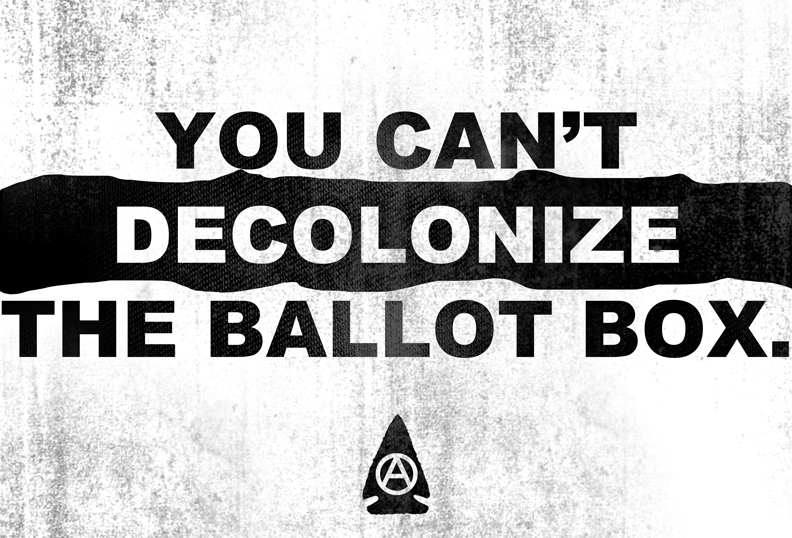 Since the idea of U.S. “democracy” is majority rule, barring an extreme population surge, Indigenous voters will always be at the mercy “of good intentioned” political allies. Consolidating the Native vote into a voting bloc that aligns with whatever settler party, politician, or law that appears to do less harm isn’t a strategy to exercise political power, it’s Stockholm syndrome.
Since the idea of U.S. “democracy” is majority rule, barring an extreme population surge, Indigenous voters will always be at the mercy “of good intentioned” political allies. Consolidating the Native vote into a voting bloc that aligns with whatever settler party, politician, or law that appears to do less harm isn’t a strategy to exercise political power, it’s Stockholm syndrome.
The Native vote also seeks to produce Native politicians. And what better way to assimilate rule then with a familiar face? The strategy of voting Indigenous Peoples into a colonial power structure is not an act of decolonization, it’s a fulfillment of it. We have a history of our people being used against us by colonial forces, particularly with assimilated Indigenous Peoples acting as “Indian Scouts” to aid the enemy’s military. In only one recorded instance, Ndee (Cibicue Apache) Army Scouts mutinied against the U.S. when they were asked to fight their own people. Three of the Ndee scouts were executed as a result.
No matter what you are led to believe by any politician seeking office, at the end of the day they are sworn to uphold an oath to the very system that was designed to destroy us and our ways of life. The oath for members of Congress states, “I do solemnly swear (or affirm) that I will support and defend the Constitution of the United States against all enemies, foreign and domestic; that I will bear true faith and allegiance to the same; that I take this obligation freely, without any mental reservation or purpose of evasion; and that I will well and faithfully discharge the duties of the office on which I am about to enter: So help me God.”
Even if we assume that their cultural values and intentions are in line with those of the people, it is rare that politicians are not tied to a string of funders. As soon as they get elected they are also faced with unrelenting special interest lobbying groups that have millions and millions of dollars behind them and, even if they have stated the best intentions, are inevitably outnumbered by their political peers.
A less harmful form of colonial occupation is fantasy. The process of colonial undoing will not occur by voting. You cannot decolonize the ballot.
Today we have candidates that were elected making promises to stop the mass scale kidnapping and murdering of Indigenous women, girls, and two-spirit people and what do they propose? They don’t indict the resource colonizers destroying our lands whose very industry is precipitating this crisis of human trafficking and extreme gender violence. They don’t propose ending capitalism and resource colonialism. They propose laws and more cops with more power to enforce those laws in our communities, so although we have an epidemic of police violence and murders against our peoples, Indigenous politicians address one violent crisis by making another one worse for our people. It’s the fulfillment of the assimilationist cultural genocide of “killing the Indian to save the man.” With that vote, the willful participation and sanctioning of the violence of this system, you kill the Indian and become “the man.”
Tribal, local, and regional politics are situated in the same colonial arrangement that benefits the ruling class: politicians are concerned with rules and ruling, police and military enforce, judges imprison. Regardless of who and on what scale, no politician can ever represent Indigenous lifeways within the context of a political system established by colonialism.
A less harmful form of colonial occupation is fantasy. The process of colonial undoing will not occur by voting. You cannot decolonize the ballot.
Rejecting settler colonial authority, aka not voting.
Voting in the colonizer’s elections keeps Indigenous Peoples powerless.
Our power, broadly speaking, does not come from non-consensual majority rule top-down man-made laws but is derived in relation with and proportion to all living beings. This is a corporeal and spiritual power that has been in effect since time immemorial and is what has kept Indigenous Peoples alive in the face of more than 500 years of extreme colonial violence.
The late Ben Carnes, a powerful Choctaw advocate, is quoted in an article about the Native vote by Mark Maxey stating, “My position is that I am not a citizen of a government who perpetuates that lie that we are. Slavery was legal just as well as Jim Crow, but just because it is law doesn’t make it right. We didn’t ask for it, the citizenship act was imposed upon us as another step in their social and mental conditioning of Native people to confiscate them of their identity. It was also a legislative method of circumventing the ‘Indians not taxed’ clause of the Constitution, thereby justifying imposing taxes. The U.S. electoral system is a very diseased method where candidates can be purchased by the highest corporate (contributor) bidder. The mentality of voting for the lesser of two evils is a false standard to justify the existence of only a two-party system. Checks and balances are lacking to ensure that public servants abide by the will of the people. The entire thing needs to be scrapped as well as the government itself.”
Voting will never be “harm reduction” while colonial occupation & U.S. imperialism reigns. In order to heal we have to stop the harm from occurring, not lessen it. This doesn’t mean simply abstinence or ignoring the problem until it just goes away, it means developing and implementing strategies and maneuvers that empower Indigenous People’s autonomy.
Since we cannot expect those selected to rule in this system to make decisions that benefit our lands and peoples, we have to do it ourselves. Direct action, or the unmediated expression of individual or collective desire, has always been the most effective means by which we change the conditions of our communities.
What do we get out of voting that we cannot directly provide for ourselves and our people? What ways can we organize and make decisions that are in harmony with our diverse lifeways? What ways can the immense amount of material resources and energy focused on persuading people to vote be redirected into services and support that we actually need? What ways can we direct our energy, individually and collectively, into efforts that have immediate impact in our lives and the lives of those around us?
This is not only a moral but a practical position and so we embrace our contradictions. We’re not rallying for a perfect prescription for “decolonization” or a multitude of Indigenous Nationalisms, but for a great undoing of the settler colonial project that comprises the United States of America so that we may restore healthy and just relations with Mother Earth and all her beings. Our tendency is towards autonomous anti-colonial struggles that intervene and attack the critical infrastructure that the U.S. and its institutions rest on. Interestingly enough, these are the areas of our homelands under greatest threat by resource colonialism. This is where the system is most prone to rupture, it’s the fragility of colonial power. Our enemies are only as powerful as the infrastructure that sustains them. The brutal result of forced assimilation is that we know our enemies better than they know themselves. What strategies and actions can we devise to make it impossible for this system to govern on stolen land?
We aren’t advocating for a state-based solution, redwashed European politic, or some other colonial fantasy of “utopia.” In our rejection of the abstraction of settler colonialism. we don’t aim to seize colonial state power but to abolish it.
We seek nothing but total liberation.
Sources:
Principles of Harm Reduction, Harm Reduction Coalition
The Citizenship Act of 1924, Joseph Heath, Esq. General Counsel of the Onondaga Nation
To Silence a Drum: The Imposition of United States Citizenship on Native Peoples, Alexandra Witkin
Challenging American Boundaries: Indigenous People and the “Gift” of U.S. Citizenship, Kevin Bruyneel
Custer Died for Your Sins: An Indian Manifesto, Vine Deloria Jr
Indian Rights Association, Encyclopedia.com
Indigenous Act helped complete the work of the 19th Amendment, asunow.asu.edu
The Ballot Humbug, Lucy Parsons
The Ballot or the Bullet, Malcom X
Act Responsibly: Don’t Vote!, Wendy McElroy
Voting vs. Direct Action, CrimethInc
Anarchists, Is It Really Our Duty To Vote, Worker Solidarity Movement
Indigenous votes matter, Mark Maxey
You may like
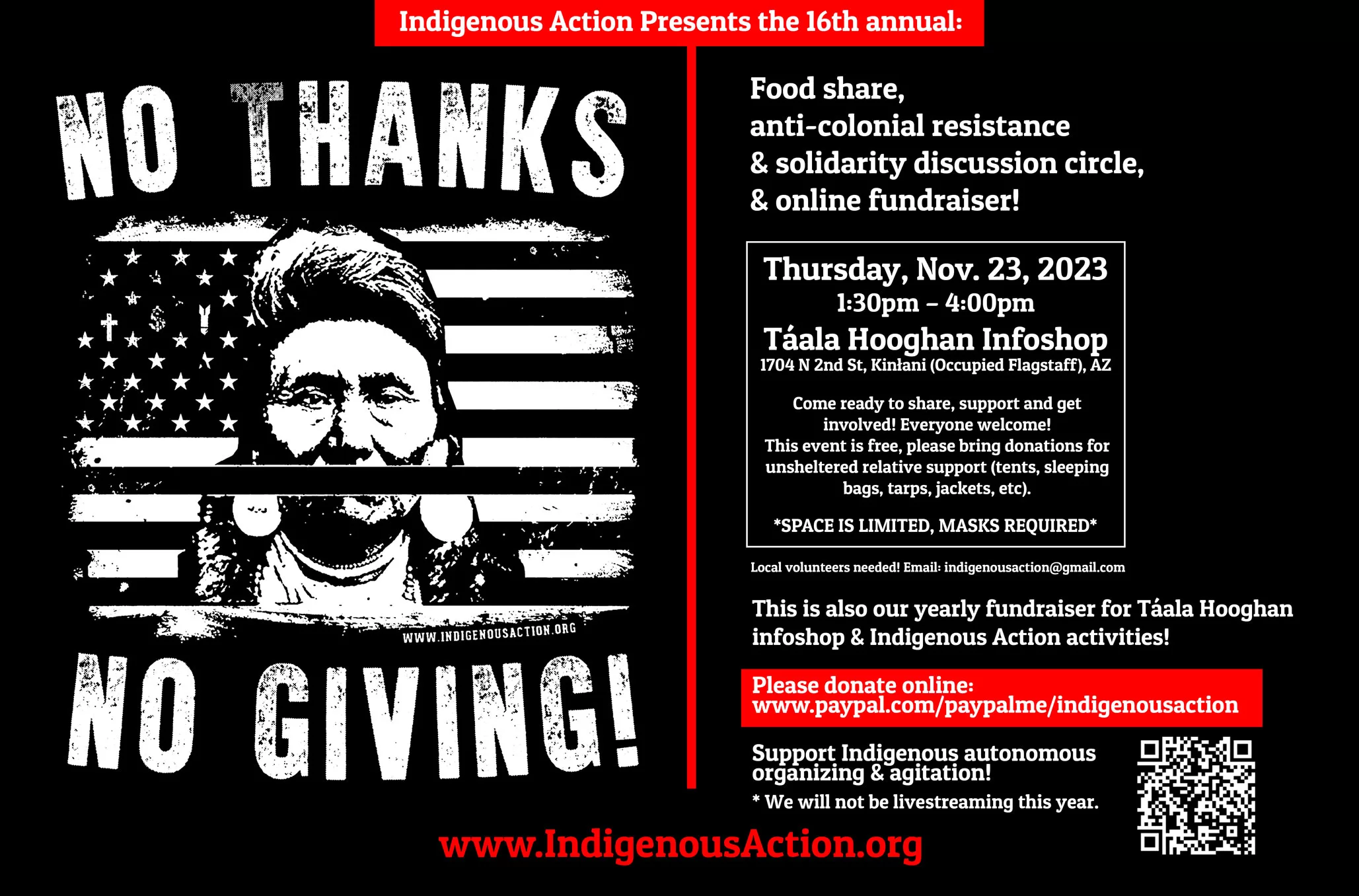
Indigenous Action presents:
16th Annual No Thanks, No Giving!
Food share, anti-colonial resistance & solidarity discussion circle, & online fundraiser!
DONATE: 
1:30p – 4pm
We will prepare and serve mutton stew and other foods for all who join us. Please bring any dish to contribute if you wish, we also plan on actively distributing (possibly mobile) any extra foods.
Local volunteers needed! Contact: indigenousaction@gmail.com
At 2:30p we will have a talking & action circle focused on anti-colonial resistance & solidarity. Representatives of Kinłani Mutual Aid, Haul No!, volunteers with Protect the Peaks, and autonomous organizers supporting unsheltered relatives will present & discuss upcoming actions & organizing. We will also discuss building Indigenous solidarity with local efforts to Free Palestine. Come ready to share, support and get involved! Everyone welcome!
This event is free, please bring donations for unsheltered relative support (tents, sleeping bags, tarps, jackets, etc).
This is also our yearly fundraiser for Táala Hooghan infoshop and Indigenous Action activities!
Please donate online via PayPal: https://www.paypal.com/paypalme/indigenousaction
Support Indigenous autonomous organizing and agitation!
*We will not host a livestream this year.
When: Thursday, Nov. 23, 2023
1:30pm – 4:00pm MST.
Where: Táala Hooghan Infoshop1704 N 2nd St, Kinłani (Occupied Flagstaff), AZ
MASKS REQUIRED This event will be held both indoors and outdoors (dress warm!) with limited indoor space. We will maintain social distancing & mask protocols for immunocompromised relatives.
For 16 years we have hosted No Thanks, No Giving! as an anti-colonial event to bring together radical Indigenous voices, share traditional foods, and benefit unsheltered relatives at Táala Hooghan Infoshop in Kinlani (Flagstaff, AZ). More info: www.indigenousaction.org
#nothanksnogiving #MutualAid #indigenousmutualaid #solidaritynotcharity
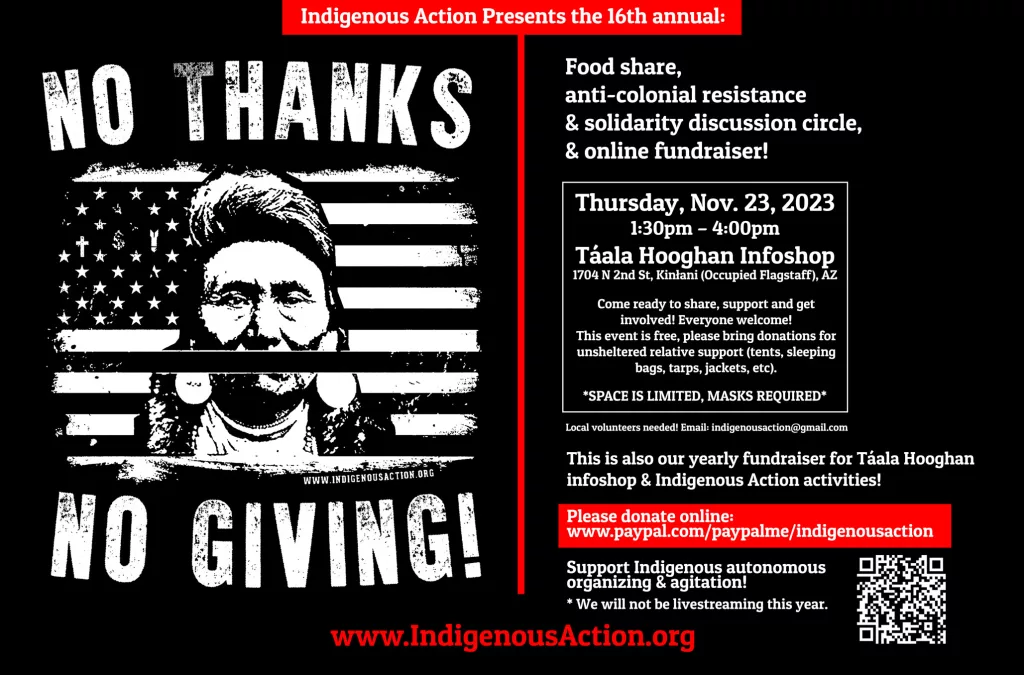
anti-colonial
New Book: No Spiritual Surrender, Klee Benally
New Book: No Spiritual Surrender: Indigenous Anarchy in Defense of the Sacred is a searing anti-colonial analysis rooted in frontline experience.
Published
2 years agoon
November 18, 2023By
Rudy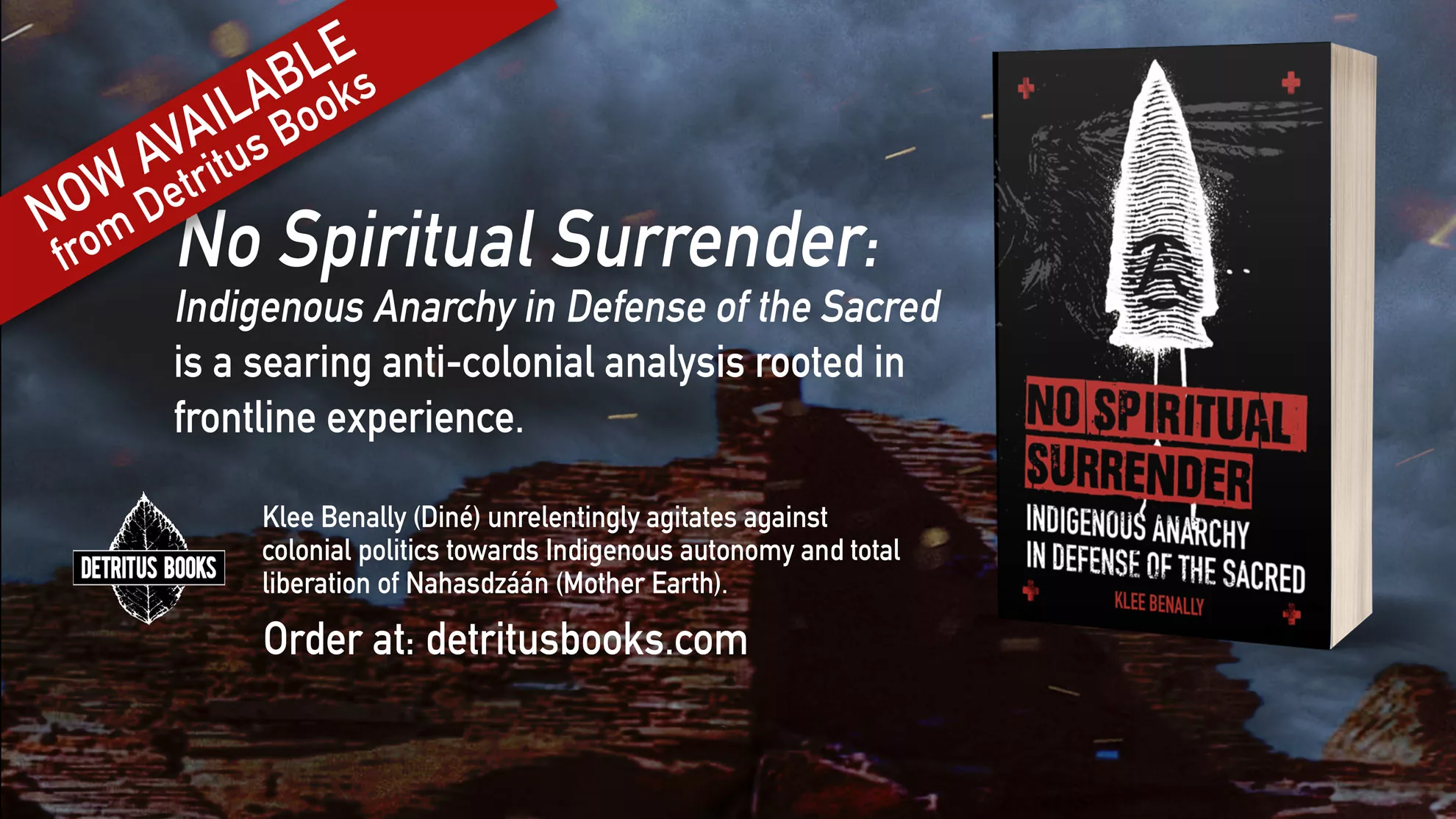
NOW AVAILABLE ONLINE & SELECT BOOKSTORES: No Spiritual Surrender: Indigenous Anarchy in Defense of the Sacred
No Spiritual Surrender: Indigenous Anarchy in Defense of the Sacred is a searing anti-colonial analysis rooted in frontline experience. Klee Benally (Diné) unrelentingly agitates against colonial politics towards Indigenous autonomy and total liberation of Nahasdzáán (Mother Earth).
Available now from Detritus Books detritusbooks.com
406 pages | $20 Nonfiction | Paperback Available in select bookshops.
About the author: Klee Benally is a Diné (Navajo) anarchist and undisciplined agitational propagandist. Originally from Black Mesa. Klee currently resides in occupied Flagstaff, Arizona. kleebenally.com, indigenousaction.org
www.detritusbooks.com
Wholesale inquiries: detritusbooks.com
Now booking speaking tour dates: indigenousaction@gmail.com
anti-colonial
Anti-Colonial Solidarity with Palestine Posters: While we mourn, we also fight.
Published
2 years agoon
October 18, 2023By
Rudy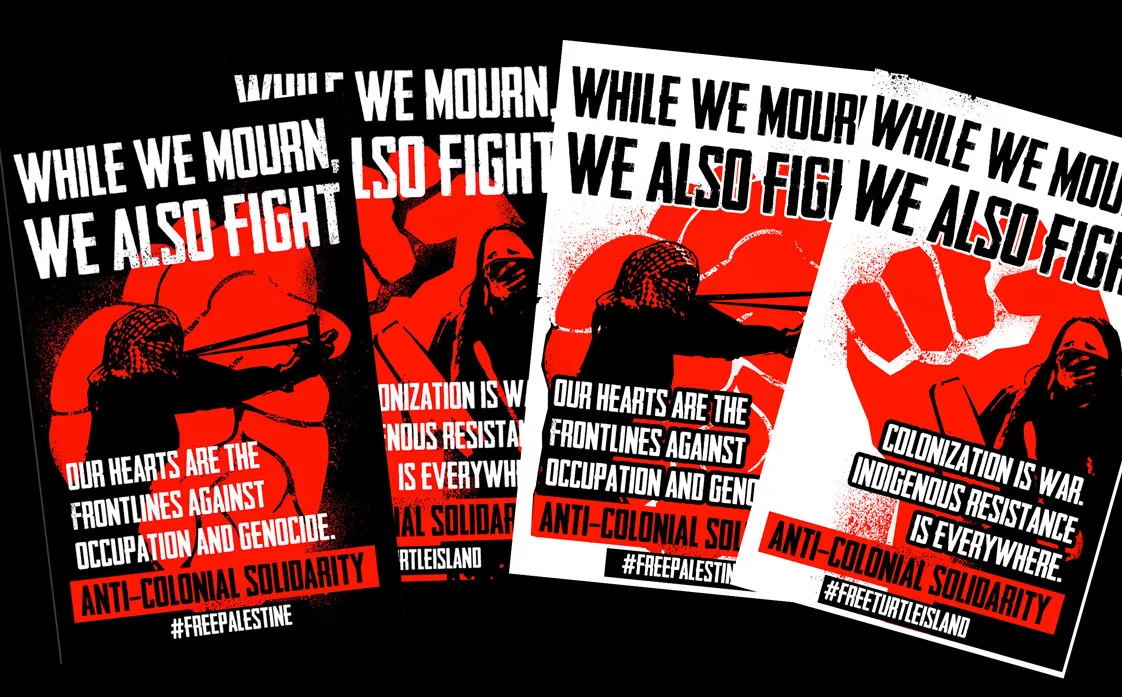
Anti-Colonial Solidarity with Palestine Posters: While we mourn, we also fight.
Support @fauda_palestine (on IG) and check the resource list here: https://docs.google.com/document/d/1D6HDDbHiz6je0txmEL8pALcQtI0vpPUlQdNQJ7exMqo/edit
High resolution printable PDFs:
While we mourn, we also fight. Our hearts are the frontlines against occupation & genocide.
Anti-Colonial Solidarity is mourning genocide & resisting occupation while fighting for liberation.
Anti-Colonial Solidarity means we won’t stop until all are free.
Colonization is war. Indigenous resistance is everywhere.
freepalestine #freeturtleisland
Get updates via email, sign up here:
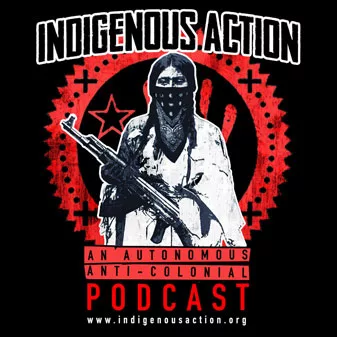
Indigenous Action Podcast
- Indigenous Action Podcast Ep. 18: No Settler Future An Anti-Year in Review (sorta)
- Indigenous Action Podcast Episode 17: Decolonization isn’t a Holiday
- Indigenous Action Podcast Episode 16: Fuck a Valentine, Indigenous Abolition Feminism
- Indigenous Action Podcast Episode 15: 15th Annual No Thanks, No Giving: Indigenous Anarchism
- Indigenous Action Podcast Episode 14: Queering #MMIWG2ST
Popular Posts
-

 Commentary & Essays12 years ago
Commentary & Essays12 years agoAccomplices Not Allies: Abolishing the Ally Industrial Complex
-

 anti-colonial6 years ago
anti-colonial6 years agoRethinking the Apocalypse: An Indigenous Anti-Futurist Manifesto
-

 Feature Front2 years ago
Feature Front2 years agoThe family of Klee Benally thanks you for the donations!
-

 #nonukes12 years ago
#nonukes12 years agoIndigenous Elders and Medicine Peoples Council Statement on Fukushima
-

 anti-colonial4 years ago
anti-colonial4 years agoUnknowable: Against an Indigenous Anarchist Theory – Zine
-

 #nonukes16 years ago
#nonukes16 years agoUranium Mining Begins Near Grand Canyon
-

 #policestate5 years ago
#policestate5 years ago16 Things You Can Do To Be Ungovernable. P.S. Fuck Biden
-

 anti-colonial2 years ago
anti-colonial2 years agoNew Book: No Spiritual Surrender, Klee Benally



